Facebook Messenger is arguably one of the most popular chatting apps. Unfortunately, because of its popularity, it is a target for malicious programs such as Trojans, spyware, ransomware, and others to infiltrate various systems. Recently, there has been an increase in Facebook Messenger infections spread through phishing. As a rule, the Facebook Messenger virus scam spreads and installs FormBook Trojan in the victim’s system. Today, we will learn how to remove the Facebook Messenger virus and protect yourself from it.
What is Facebook Messenger Virus?
The Facebook Messenger virus is a malicious file distributed through the Messenger platform. Users receive the nasty Trojan from their trusted connection through a video file or link. In one attack, the FormBook Trojan was spread through an archive file named “video_13925.bz.” When this file is extracted, FormBook is activated. This Trojan is quite dangerous for the system because it is designed to steal personal information such as passwords, bank details, keystrokes, clipboard history, and more. The FormBook Trojan can also open the doors for other malware, such as other spyware or ransomware, to enter.
Symptoms of the Facebook Messenger Virus
This virus tracks web browser activity to steal login data for the Facebook social network. In addition to stealing login data, it can also:
- Take screenshots,
- Delete user cookies,
- Try to connect to google.com to confirm your Internet connection,
- Contact a remote site (its C&C server) to download and install other files,
- Forward any stolen data to the C&C server,
- Disable the task manager,
- And shut down and restart the computer.
Formbook also checks your computer for any standard debugging techniques or keywords such as “VM”, “VMWare Users.exe”, “Sandbox” and “VMWare Service”. So, if the above is detected, the Trojan is terminated immediately. Unfortunately, this step makes it difficult for security researchers to analyze the malware.
How does the Facebook Messenger virus infect the device?
Facebook Messenger Virus spreads through the Facebook Messenger platform, meaning victims receive malicious file attachments through their trusted connections that are either compromised or trapped in a phishing attack. Because a trusted friend has sent the attachment, the victim opens it and installs FormBook on their system. Sometimes the Trojan is delivered after following the link that at the first sight leads to YouTube. Hence, victims open them without any suspicion.
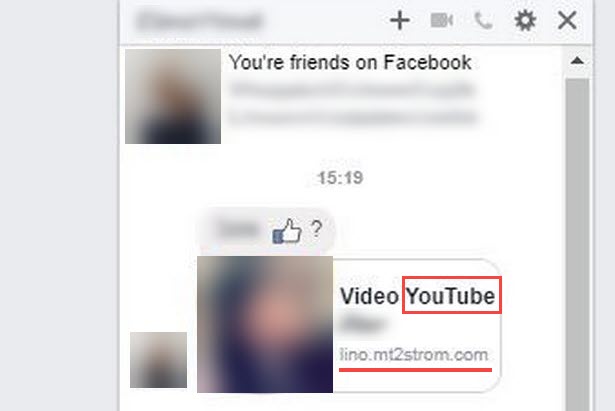
The most popular malware attacks on Facebook
Hackers are constantly creating new malicious programs and finding clever ways to infiltrate the system. As one of the most popular sites on the Internet, Facebook has become a breeding ground for all sorts of viruses. Here are the most common ways cybercriminals use to spread malware through Facebook:
The Spam Post
It’s one of the most used tactics. Hackers create spam messages on their timelines or Facebook groups. In most cases, they contain links that redirect to a virus posted on a third-party site. Spam posts can be of any popular type – text, graphic, or combination. In many cases, hackers may also introduce emoticons and emojis to entice users further.
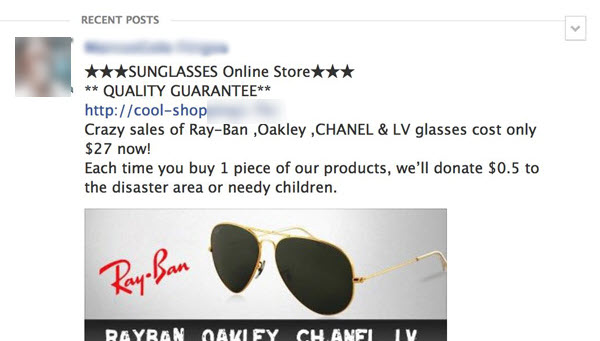
Messenger Phishing
Messenger is usually relatively good at detecting and blocking phishing links, but scammers managed to bypass it. For example, suppose a victim clicks on a malicious link in Facebook Messenger. The browser initiates a chain of redirects. However, first redirect points to a legitimate “application deployment” service. Then, after the user clicks, they will be redirected to the phishing page. But regarding what gets to Facebook, it’s a link created using a legitimate service that Facebook can’t directly block without blocking legitimate apps and links.
Ad Redirects
Some advertising networks operating from the Facebook social network can lead to a virus attack. These campaigns usually pose as legitimate product or service providers, leading to download portals controlled by hackers. Such links are typically distinguished by the fact that they advertise services or products at a meager price.
Fake and Malicious Apps
Sometimes hackers can create fake applications that pretend to be real. They may have similar names and designs to get unsuspecting victims to use them. Interacting with such applications can lead to a virus infection. In some cases, advertised apps may be infected payload carriers – legitimate app installation files infected with viral code. Once they are installed, the malware will be installed as well.
Infected Images
Several large-scale spam campaigns were used to deliver dangerous malware, such as the Locky ransomware, via the social network Facebook. Then attackers used image files that were actually compressed or binary files, leading to infections. Thus, more advanced infections can include steganography-infected viruses. These are stealthy threats activated after an image has been downloaded to a computer.
Impersonating Profiles
Hackers can extract data from existing user profiles, then create fake identities. Then, by a unique trigger, they send messages to contacts that contain links leading to fraudulent sites or attachments containing viruses. The fake profiles can be an exact copy of the original ones if all publicly available content is posted precisely the same way.
Counterfeit Facebook Browser Extensions
Over time, hackers have created various browser hijackers that pretend to be legitimate extensions that include Facebook integration or additional features. However, when installed on a victim’s computer, they compromise user privacy and can infect hosts with viruses. In addition, these browser extensions are usually advertised using detailed descriptions and uploaded to relevant repositories with fake user reviews and developer credentials.
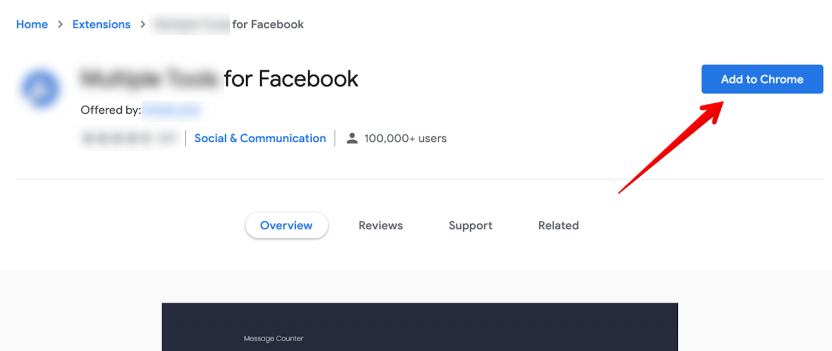
Facebook Notification Virus
This virus infects users if they click on a fake notification. Such notifications are usually disguised to make it look like a friend has replied to your comment. However, when you click on the notification, you give access to the virus. After exposure to this virus, it can begin flooding your computer with advertisements. This includes advertisements such as web banners, pop-ups, highlighted text, ad-supported search results, and other types of ads. Such advertised content can be indirectly dangerous to your computer because it can infect it with other unwanted programs and malware.
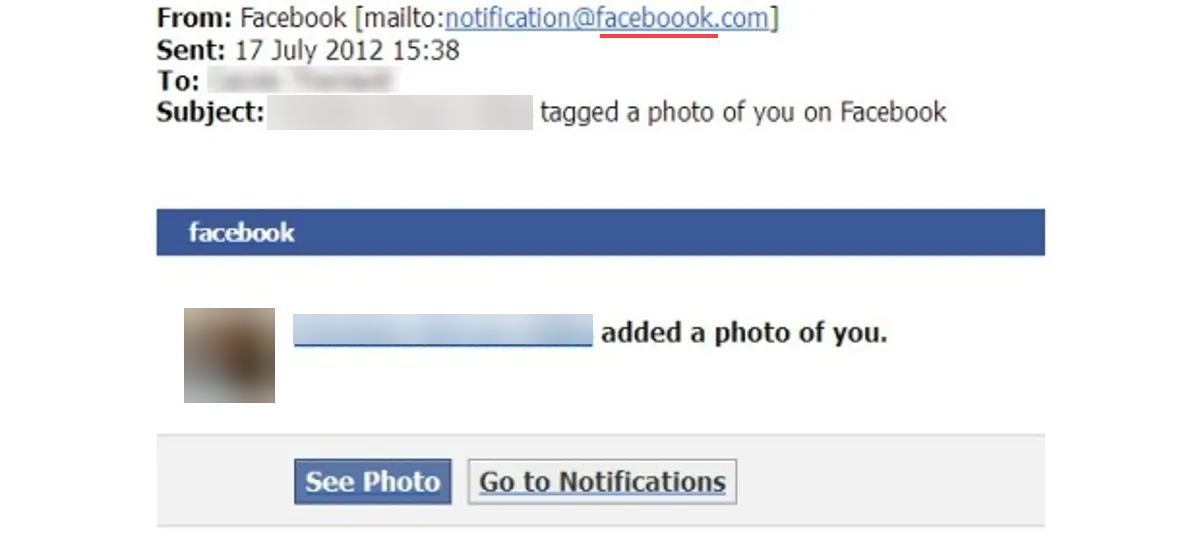
In-Video Virus Scripts
An example of an unintentional execution of a rogue JavaScript program. Users unintentionally run a JavaScript file by clicking a link that allows cybercriminals to gain control of their Facebook accounts. The clicked link redirects to a website containing a fake video player. This is deceptive – by clicking “Play,” users run a script that infects their systems with malware (which can collect sensitive information, deliver intrusive ads, trigger unwanted redirects, etc.). Clicking on such links is extremely dangerous.
How to remove Facebook Messenger Virus?
Restart your PC in Safe Mode. Windows Safe Mode is the ideal environment for detecting and removing malware in your system. Only system services and some critical programs run in Safe Mode. In addition, safe mode will most likely prevent the startup of software that runs automatically on your system in normal mode.
Delete Temporary Files. A folder with temporary files can also be a host for malicious files. Thus, it is recommended that you clean temporary files and folders from time to time to keep your system running smoothly. Deleting temporary files will also clear your system of unnecessary clutter and free up disk space.
Run a full system scan with antivirus software. Removing malware manually can be tedious and takes a lot of time and effort. No need to worry; you can get reliable malware protection such as GridinSoft AntiMalware that will scan and remove malware. GridinSoft AntiMalware is reliable security software that promises to protect your system and help you deal with malware and viruses. GridinSoft AntiMalware detects and removes malware in real-time. It also protects your computer from the most dangerous malware, such as ransomware, zero-day protection, junk programs, keyloggers, etc.
Reset Web Browser Settings. Sometimes such programs change your browser settings, but the settings do not return once removed. For example, reset its default settings if your browser misbehaves after the Facebook Messenger virus activity. Also, pay attention to the installed browser extensions. There should be nothing unnecessary there.
How to Avoid these Threats in The Future?
In today’s world, with everything becoming even more dependent on the Internet, you must never forget to protect your system from malware such as the Facebook Messenger Virus. Therefore, you need to be careful and watch where you go and what you click. Here are some tips:
- Never download unknown attachments or click on suspicious links sent to Facebook Messenger, even if you have trusted connections.
- Use a malware protector and update it regularly.
Avoid suspicious free downloads. Freeware is one of the leading carriers of malware. - Always stick to safe websites because unprotected sites are often used to spread malware.
- Don’t fall for the trap of intriguing banner ads and pop-ups. Just clicking on them can already infect your browser with a browser virus.

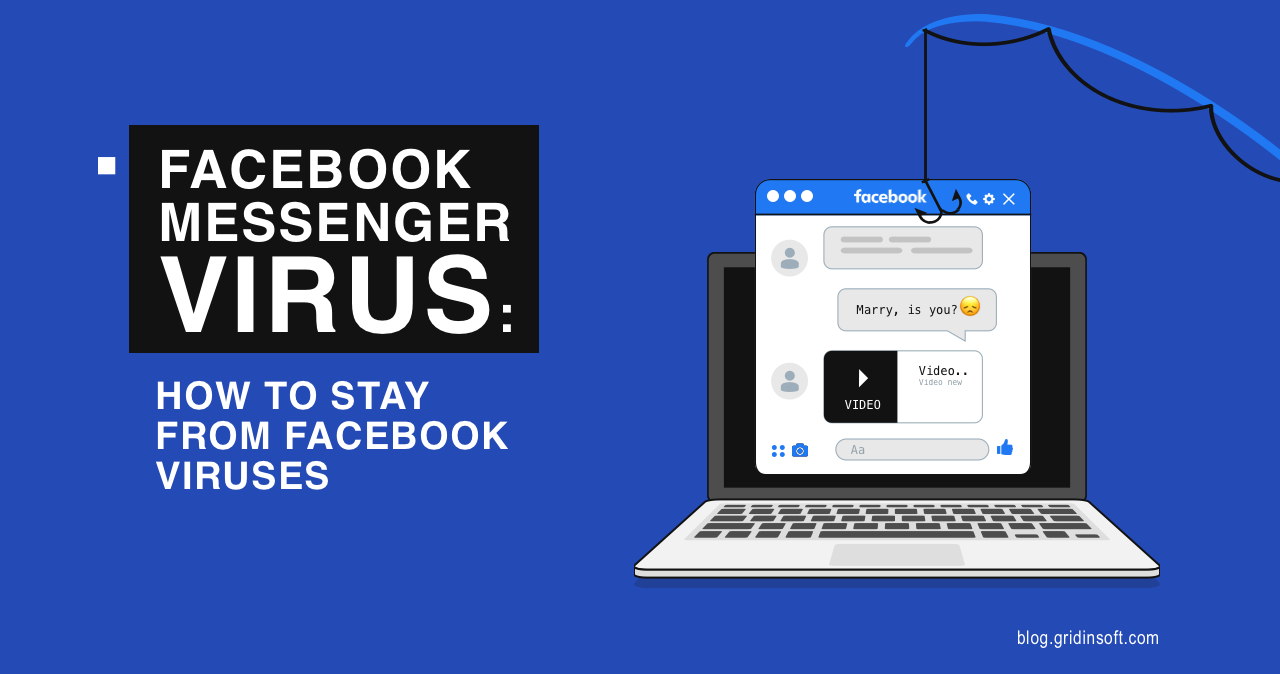
1 comment